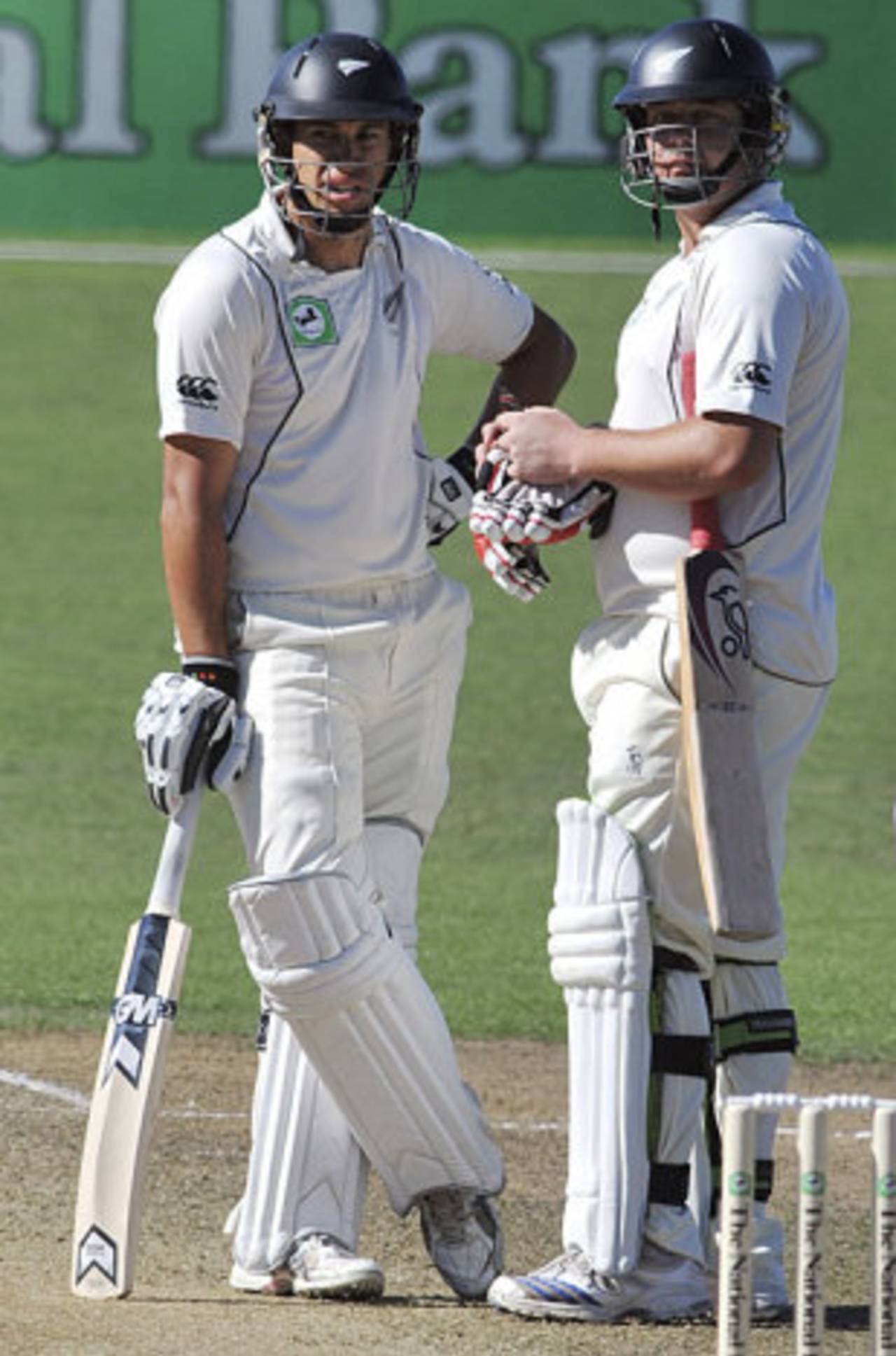Mark's men on top
It was lunch time and New Zealand had recovered from 23 for 3, but one man was not moving from his position to the right of the sightscreen. Mark Greatbatch didn't want to move because he was superstitious. His boys, Ross Taylor and Jesse Ryder, were doin
Sidharth Monga in Napier
26-Mar-2009

Mark Greatbatch: "It is a lovely feeling to watch them [Ross Taylor and Jesse Ryder] play together." • Associated Press
It was lunch time and New Zealand had recovered from 23 for 3, but one man was not moving from his position to the right of the sightscreen. Mark Greatbatch didn't want to move because he was superstitious. His boys, Ross Taylor and Jesse Ryder, were doing well, and he didn't want things to go awry.
Greatbatch stood there through the middle session, talking to various people, but didn't move a lot from his position. Not a wicket fell in that session. After tea, with the "boys" firmly entrenched, he finally relented, and moved. But he still couldn't talk looking at you, it was a dream come true for Greatbatch who knew the two would play Tests for New Zealand from the time he first met them, about 13 years ago. Now they were putting together a world-record stand to rescue New Zealand, and Greatbatch was one of the most satisfied people at McLean Park.
"[When I met him first] Ross was 12 years old I was playing a first-class game in Wairarapa, and this little guy - no he was a big lad - came up to me and asked if he could be the 12th man," Greatbatch remembers. "I said, 'You can do the scores and sometime I will give you a day.' He came in during the drinks with the gloves and all that, and he was a good lad. Very nice and very polite and stayed all the four days with us. I took him out for some batting one night, and I saw that he was quite a strong hitter of the ball. We got him to the Central District Under-15 team, and based here he got two hundreds, one of which was a 150. He wasn't playing much cricket in the Wairarapa so we got him to Palmerston North."
Taylor had just crossed his hundred then, there were 35 overs left in the day, and Greatbatch reckoned he could get to 250 by stumps, if he stayed there. He has known all the while the power Taylor can pack into his stroke, and the pace he scores at once he is in. In the next 15 overs he had got another 50, and wouldn't have finished far off 250 had he carried on till stumps.
Taylor's power, his hitting technique, Greatbatch reckons, could have come from Kilikiti, the Samoan version of cricket. Kilikiti is played with a heavy rubber ball and a long three-sided bat, which makes it difficult to predict the direction of the hits. Taylor's mother was from Samoa.
There wasn't much cricket in Wairarapa though, and Taylor had to be taken away to Palmerston North where he studied in boarding school, whose headmaster had been there from Greatbatch's time. But his parents were not really well to do. "We had to find money for him to board at the school," Greatbatch says. "Money for his lodging and stuff. He had the money to go to school, but other things cost money. Myself, CD and some people around here used to do raffles for him."
Ryder, too, was spotted early by Greatbatch, during a club match. "I watched him get 260-odd when he was playing second-grade club cricket," Greatbatch says. "He was a boy playing like a man. Very skilful, but quite wild, and it is great to see him play at the highest level. This kid can be world class. You can see how at ease he is. He belongs there."
Ryder though, didn't have parents who were as supportive as Taylor's, who took five minutes to decide in favour of Ross going to a good school and playing cricket. The Ryder family was a troubled unit, and Jesse had to be on his own all the way. He studied in Napier Boys High School, which is not too far from McLean Park.
Greatbatch's association with Ryder wasn't a long one, but he thought it was perhaps best for Ryder to move on. "His talent is quite good but there were other things too," says Greatbatch. "So I told him he needed to go to some other place to sort things out. I didn't sack him but he made the decision. That was the best things that could have done. He went to live in Wellington, and played for them."
After just six matches together at the first-class level, Ryder moved to Wellington. But they would soon be reunited at Test level. Greatbatch had foreseen that long ago. Perhaps he had seen that during one of their big partnerships at Nelson Park.
"It is a lovely feeling to watch them play together," Greatbatch said. "When I first saw them, I thought that they will both play for New Zealand. They were pretty talented though that doesn't always get you there. You know - in different ways - they have got there."
Sidharth Monga is a staff writer at Cricinfo